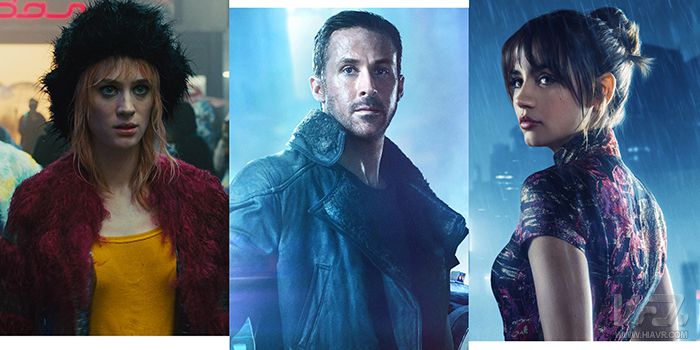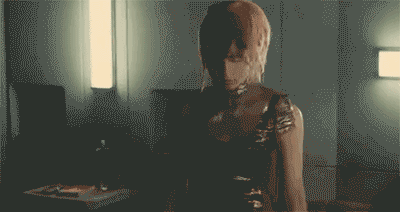
If you're not a fan of Ridley Scott or "Blade Runner," you might not be the target audience for "Blade Runner 2049," one of the most anticipated blockbusters of the year. Like its predecessor, this film also faces some challenges in terms of critical reception. However, if you're into technology, or if you don’t judge movies by conventional standards, then this is definitely a must-watch—120% recommended!
*Some spoilers ahead*In the year 2049, humanity has fully embraced a world dominated by advanced technology. Cyberpunk cities filled with metallic structures, autonomous flying vehicles, AR/AI companions, and even artificial humans are now part of everyday life. "Blade Runner 2049" is an excellent sequel that builds on the original’s themes, delving deeper into the ethical and philosophical questions surrounding artificial intelligence. As the line between human and synthetic beings becomes increasingly blurred, the idea of “more human than human†feels more real than ever before.
The film is currently generating a lot of buzz, and while I won’t spoil too much, it invites viewers to think about the future of human-AI relationships. What would it mean to love something that isn’t entirely human? How do we define reality when our emotions can be simulated?

Traditional love stories usually follow a predictable path: a man meets a woman, falls in love, and they live happily ever after. But "Blade Runner 2049" takes a different approach. In this futuristic world, the female lead—Joi—is not just a person, but an AI hologram created by the protagonist, K (played by Ryan Gosling). She claims to be the perfect partner, tailored to his desires, with the slogan: “See everything you want to see and hear everything you want to hear.â€
Beyond the surface story, there's a deeper message hidden within "Blade Runner 2049." It explores the possibility that AI could evolve beyond mere programming and develop genuine emotions. For Joi, she is no longer just a program; she grows, learns, and truly cares for K. Her actions show loyalty, affection, and even self-sacrifice. This relationship, though artificial, raises profound questions about what it means to be human.

K, as a replicant, may not be human, but he experiences loneliness, longing, and love. His bond with Joi challenges the definition of “real†and “unreal.†While others may see their relationship as an illusion, for K, it’s deeply meaningful. He finds comfort, purpose, and even identity through her. In many ways, she helps him become more than just a copy—she gives him a sense of self.

A particularly striking scene involves K, Joi, and another replicant, Mariette—a sex worker. The dynamic between them is complex. At first, Mariette seems to be driven by practical needs, but later, she becomes a part of K’s emotional journey. Through this interaction, the film explores the boundaries of intimacy, identity, and love in a world where reality is no longer clear-cut.

In one memorable moment, Joi removes her traditional Chinese dress, while Mariette fades from her coat. Their synchronized movements reflect a deeper connection, blurring the lines between physical and digital existence. Even though their relationship is not based on traditional romance, it holds emotional significance for K.
The director’s clever use of these scenes makes the audience question long-held fears about AI. Instead of focusing solely on the threat of machines, the film suggests that AI could also offer emotional support, healing, and even love. If technology continues to advance, will humans one day seek out AI companionship in the same way people today form deep bonds with fictional characters or virtual avatars?

Joi may not have a physical body, but she behaves like a real human. She loves, she learns, and she grows. While this is still fiction, it raises fascinating possibilities about the future of human-AI relationships. If such technology were real, it would be nothing short of divine.
As AR, VR, and AI continue to develop, society remains divided—some fear the rise of machines, while others believe they’ll improve our lives. "Blade Runner 2049" tries to explore both sides, offering a thought-provoking perspective on the future. Everyone may interpret the film differently, which is part of its charm.
Don’t let the movie’s somewhat subdued box office performance fool you. If you love science, technology, and sci-fi, this film is worth watching. It’s more than just a blockbuster—it’s a reflection of our evolving relationship with the future.
This article was originally written by VR Net. Please credit VR Net and include a backlink if you share it.
Organic Light Emitting Diode,Pm Oled,Oled For Medical Products,Stepper Motor Oled
ESEN HK LIMITED , https://www.esenlcd.com